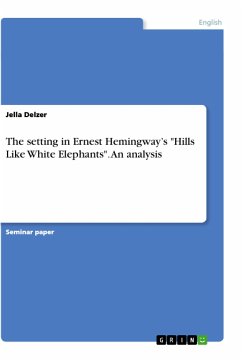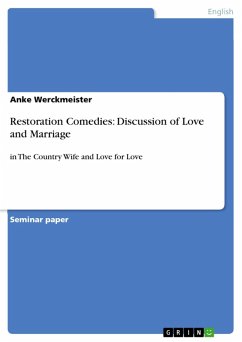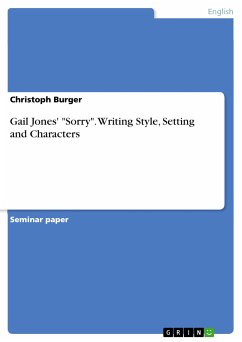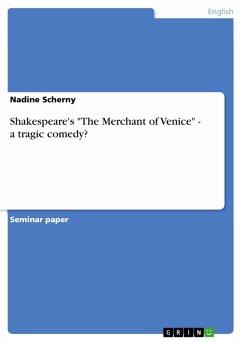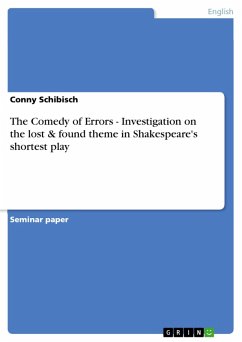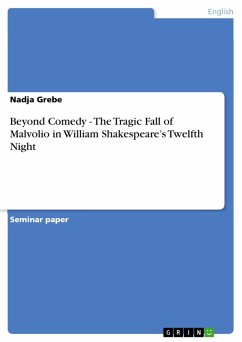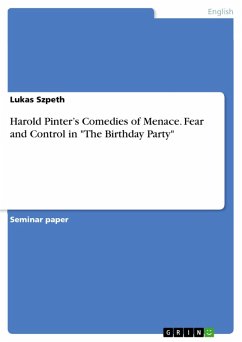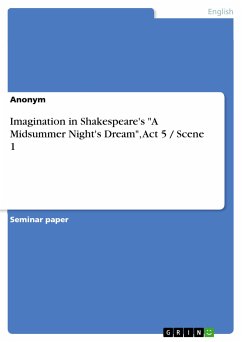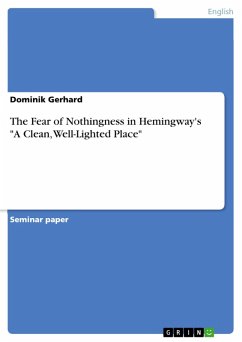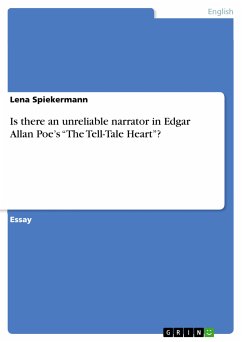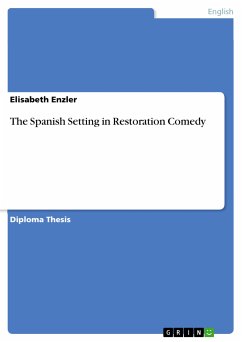
The Spanish Setting in Restoration Comedy (eBook, PDF)

PAYBACK Punkte
0 °P sammeln!
Diploma Thesis from the year 2003 in the subject English Language and Literature Studies - Literature, grade: good, University of Vienna, language: English, abstract: English Restoration Comedy has long been equated with Comedy of Manners as written by Etherege, Congreve or Wycherley with a setting in London in upper class society. There are exceptions, however. Some comedies are set in the country, as for instance Farquhar's The Recruiting Officer, or in foreign countries such as Italy (Dryden's Secret Love and Behn's The Rover I); some include characters from the lower classes of society, ev...
Diploma Thesis from the year 2003 in the subject English Language and Literature Studies - Literature, grade: good, University of Vienna, language: English, abstract: English Restoration Comedy has long been equated with Comedy of Manners as written by Etherege, Congreve or Wycherley with a setting in London in upper class society. There are exceptions, however. Some comedies are set in the country, as for instance Farquhar's The Recruiting Officer, or in foreign countries such as Italy (Dryden's Secret Love and Behn's The Rover I); some include characters from the lower classes of society, even criminals (Thomas Shadwell's The Squire of Alsatia) or fantastic creatures like witches (Shadwell's The Lancashire Witches). For this paper the period labelled Restoration Drama has been delimited somewhat arbitrarily by the Restoration itself at the beginning, and the death of Dryden at the end of it.1 The 1660's, after the re-establishment of the theatrical companies, showed a varied mix of plays, which included performances of the traditional English comedies and tragedies by for instance Shakespeare, Beaumont and Fletcher, Jonson with his humours' comedies, and also their adaptations. A new type of drama was introduced by the Cavaliers returning from their continental exile, containing French or Spanish influences such as from Moliére, or from Spanish intrigue comedy with its highly complicated plot, among the dramatis personae often two young, high-spirited ladies, a gallant and his friend, male adverse authority in the figure of father or brother, roguish attendants, 'honour touched and honour righted ... the comedy of cloak and sword.' (Ward, Cambridge, VIII/5/§15). Van Lennep in his The London Stage (I/cxxii) described it as 'the Spanish romance, based upon a Spanish source, ... its emphasis upon a rigid code of conduct, ... a plot filled with intrigue, and ... one or more high-spirited women in the dramatis personae.' In this category fall Sir Samuel Tuke's The Adventures of Five Hours. (January 1663, the Spanish source of it then attributed to Calderón, now generally to Antonio Coello; written at the request of Charles II, Tuke's play opened on 8 January 1663 before a full house and achieved an excellent run of thirteen consecutive performances.),2 or Lord Digby's Elvira (November 1664),3 Thomas Porter's The Carnival (ca 1664). 'The reliance upon an intrigue plot became the chief characteristic in the hands of later writers in this mode, such as Mrs Aphra Behn.'
Dieser Download kann aus rechtlichen Gründen nur mit Rechnungsadresse in A, B, BG, CY, CZ, D, DK, EW, E, FIN, F, GR, HR, H, IRL, I, LT, L, LR, M, NL, PL, P, R, S, SLO, SK ausgeliefert werden.




